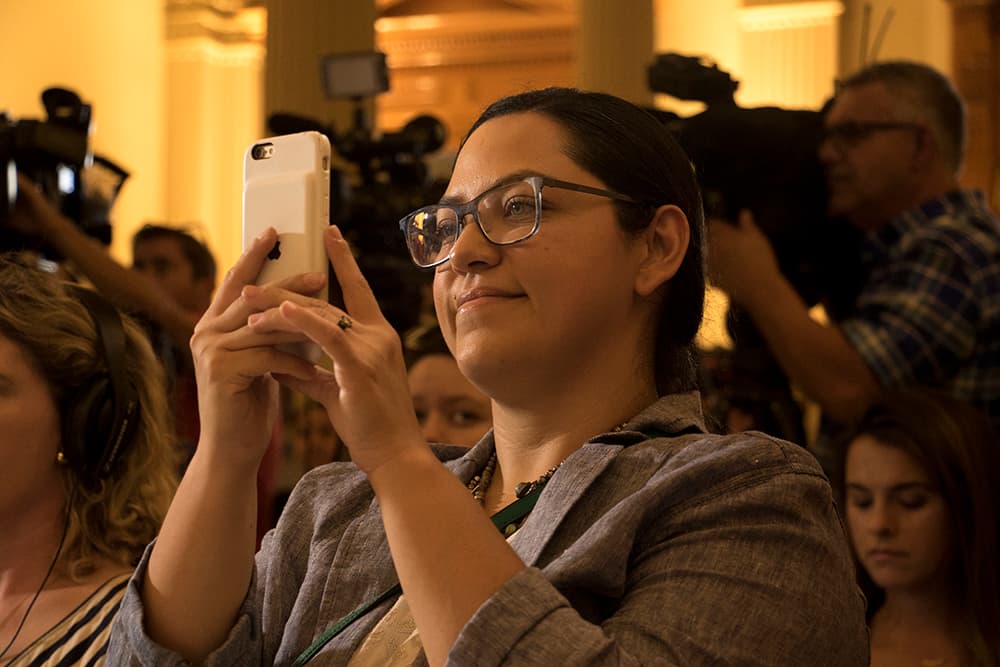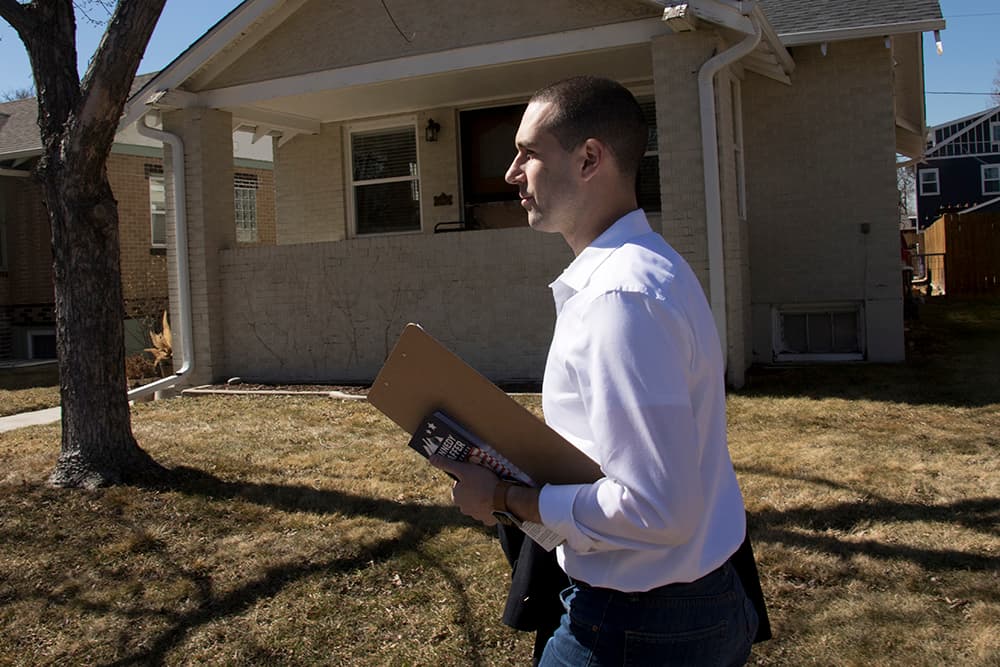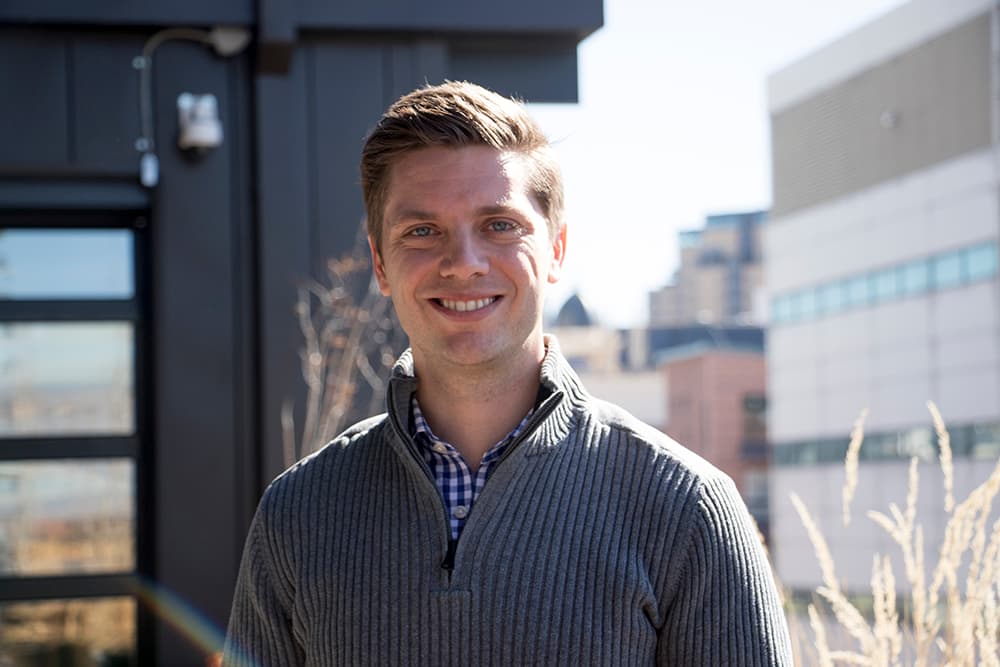Three candidates are vying to represent the Democrats in Senate District 34 in northwestern Denver. The current senator, Lucía Guzmán, can't run again due to term limits.
We spoke to the three Democrats about their positions on key topics, including health care, education and housing.
Julie Gonzales

Julie Gonzales, 35, has the endorsement of Guzmán. She is policy director at the Meyer Law Office, which is focused on immigration law, and describes herself as the “community’s champion.”
She wants to ensure that Denver keeps the racial diversity of its state representatives -- four Latino lawmakers are hitting their term limits. “That to me really raised the question, ‘Who will be that next ally from within the dome, co-governing alongside community?’”
On education: Gonzales’ mother dropped out of high school while pregnant with her older brother, then got a GED and a teaching degree. “I’ve lived the transformation that can happen,” she said.
She blames TABOR for limiting school funding. “For me, the long-term goal is to build the political will across the state to revoke TABOR or rescind TABOR,” she said. Gonzales says she would fight against school privatization, including voucher programs. She sees some potential in charters but is worried by the spread of networks of charter schools in Denver.
On housing: Gonzales lives in an affordable housing unit that she bought in 2008. “And it was the only mechanism that allowed me to continue living in Jefferson Park,” she said. “... I saw my neighborhood transform.”
She thinks the state needs to take more responsibility for affordable housing, “whether that’s creating a statewide affordable housing fund or ending the prohibition on rent control so that municipalities can fight that fight, if they so choose,” she said. She also believes the state needs stronger protections for renters.
On health care: Gonzales again points to TABOR as a major limiting factor. But with little sign of movement in Congress, she wants the state to consider options such as a universal Medicaid program.
Gonzales also lists criminal justice reform as a top issue, saying that judges need more leeway and encouragement to order rehab rather than imprisonment. She also wants the state to pardon low-level non-violent drug offenders, beginning with cannabis-related offenses.
Alan Kennedy-Shaffer

Alan Kennedy-Shaffer, 33, is a judge advocate -- a military lawyer, basically -- at Buckley Air Force Base who is pursuing his PhD in criminal justice policy at CU Denver. “The best way to describe me is a soldier, a teacher and a civil rights lawyer,” he said. “I’m running to be the progressive champion for Senate District 34.” He was previously appointed to the Harrisburg, Penn. school board, but this is his first candidacy in Colorado.
On education: “We need to dramatically increase funding for education in Colorado,” he said. He cites his own years as a teacher and an education union member, plus his work in negotiating a teacher contract in Harrisburg. He wants to see free full-day preschool and kindergarten programs.
On housing: The district needs to “balance growth with affordability,” Kennedy-Shaffer said.
He wants Colorado’s government to “double the amount of money we’re putting into affordable housing from state funds,” he said. He also wants cities to have the right to decide whether to implement rent control, which they currently can’t do in Colorado.
On health care: “My first bill would be health care for all,” he said. He wants to see a single-payer universal system. If it doesn’t happen at the federal level, he wants Colorado to expand Medicaid to cover everyone. People’s payments to join Medicaid could depend on their income, he suggested.
“Health care for all is critical to solving a host of other problems as well,” he said.
Milo Schwab

Milo Schwab, 33, is a first-time candidate and an attorney who cites criminal justice reform as a top issue. He’s running in part, he said, because he wants Democrats to take a hard look at themselves. “I’m not an ideologue. I’m not," he said. “I come from a progressive standpoint, but I want to get things done, and I’m worried that we’re not getting things done anymore.”
On education: Schwab describes schools spending “as the single biggest thing we could do to make the future better.” The state should allow communities to keep more property tax money for education funding, he said, rather than offering to return it to taxpayers under TABOR.
Schwab also believes criminal justice reform would save the state money and improve people’s lives. He wants to end the use of money bail, saying people are losing jobs and housing because they can’t afford to pay their bond and leave jail while they await trial. He’s also against mandatory minimum sentences and habitual offender statuses, instead preferring to leave decisions to judges.
On housing: Schwab said he would focus on two areas: Income inequality and housing production. A higher minimum wage could help, but he thinks it should be tailored to different areas’ economies.
Schwab says that designated affordable housing programs aren’t doing enough, and are “not necessarily a sustainable model.” Cities also need to encourage more construction that’s accessible to transportation, he said. “We can do other things like make sure there’s good transportation funding to in a sense enlarge what the city of Denver is,” he said.
On health care: Schwab wants a single-payer universal health care system. He also wants to follow Maryland’s lead by negotiating standardized rates with insurance companies and providers.
If you care about journalism and politics in Denver, you can subscribe to our newsletter and become a Denverite member. This post was updated to say this is Kennedy-Shaffer's first campaign in Colorado, not his first campaign ever.














